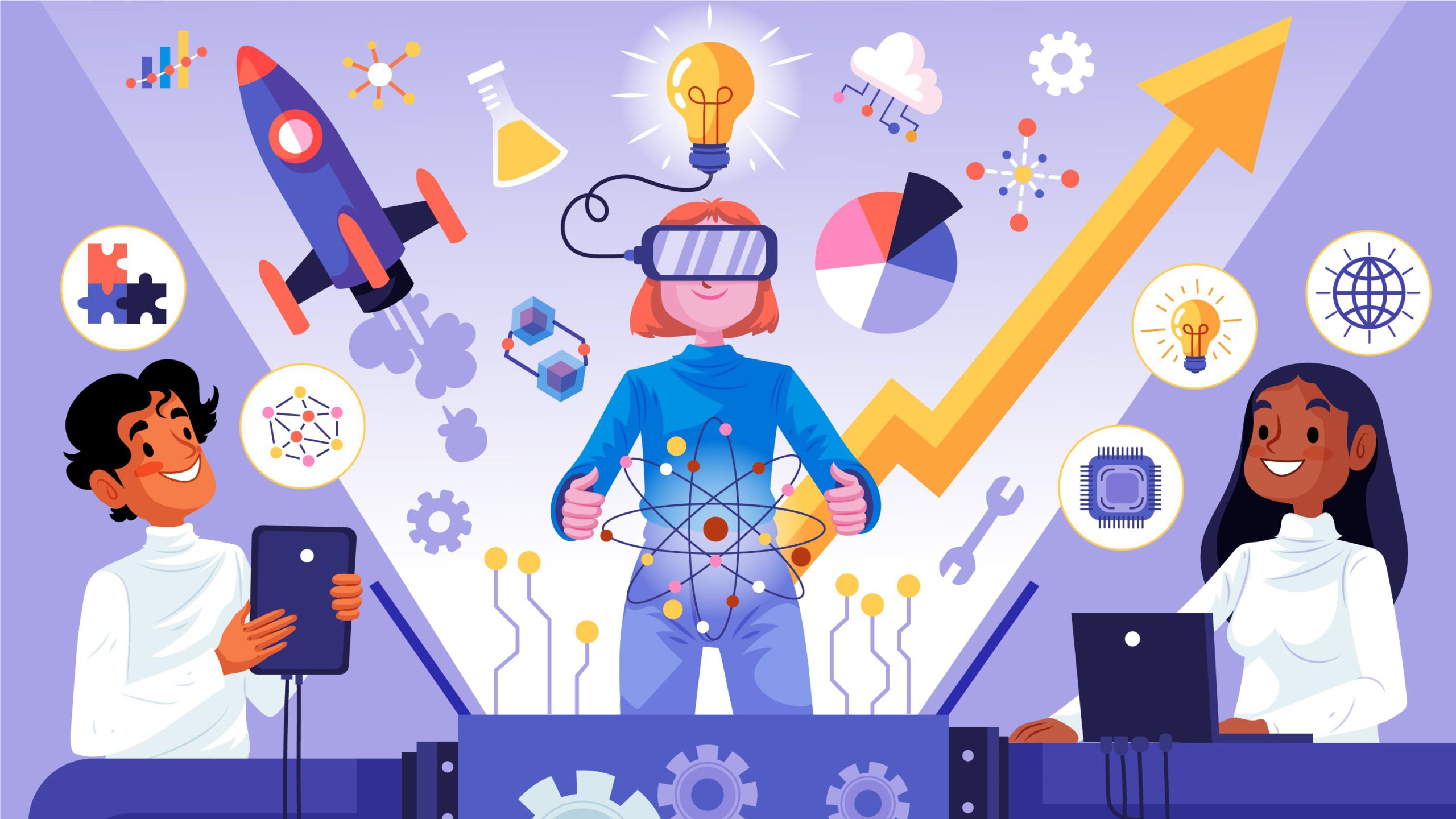Artificial Intelligence and Skills
With artificial intelligence [AI] growing in importance throughout our lives, Robbie Scarff explores the potential impact on skills and our working lives. He has also written a companion piece on the effect of AI on education and schools.
These blogs are produced as background to our event on AI and education with the Goodison Group in Scotland.
Introduction
By now, most people are familiar with the idea that AI threatens jobs in the sense of people being replaced by robots or AI systems that can do their job more efficiently and for less money.
Exactly how this will play out will vary from sector to sector and job to job, and articles making predictions on such outcomes are ten a penny. For this blog, I thought, I’d look a little deeper at the impact AI will have on what it means to be a worker.
What is the purpose of work, other than making money? How does our work influence who we are as people? And will AI’s impact on the job market have more subtle yet significant effects other than putting people out of work?
Approach
Covering all areas of work is far out with the scope of this blog, so I’m going to discuss what AI might mean for my work, in the hope it provides some general insights and lessons.
I’m a freelance copywriter, proof-reader, and I enjoy writing poetry. I don’t make money from poetry (few poets do, sadly), but I do aspire to.
So, how might AI impact my work? And what might this teach us?
Copywriting
As a copywriter my main job is to take information, either from a client’s brief or from online research, and communicate that information in a way that is engaging, informative, and, usually, encourages some form of action from the reader (buy this, support that, get in touch etc.)
This involves many aspects of critical thinking. I have to assess evidence and the reliability of sources, find, evaluate, and present contrasting viewpoints, and identify when sources of information may contain biases. I also have to explain things in ways people will understand.
ChatGPT is a direct threat to this work. ChatGPT allows users to do all manner of things by entering prompts, such as “write me a blog on the impact of AI on jobs and skills”, (disclaimer, I wrote this!) and it will scour the internet for information and write the blog for you.
Should I use ChatGPT? It would certainly save me time.
But I would lose those vital critical thinking skills that not only help my work but also help me in everyday life. I would forget how to communicate complex ideas in simple ways, something I take pride in. And I wouldn’t practice discerning important from unimportant information.
The satisfaction I get from this work would evaporate as I became a mere middleman between the information online and the finished article. And it’s important to feel satisfied with our work as it provides a sense of purpose and motivates us to keep going when we’d rather not.
Work doesn’t just teach us how to be good at our jobs; we learn valuable skills that help us navigate life and develop as people.
Proofreading
As a proof-reader, I improve other people’s writing (dissertations, books, blog posts) by correcting any spelling, grammar, or punctuation mistakes. This requires a keen eye for detail, concentration, accuracy, and knowledge of the English language.
Grammarly is a popular tool for doing exactly that. Here is another direct threat to my work, but on top of the threat to my income, how does this make me feel? I’ve worked hard, over many years, to develop those skills, and for an AI tool to come along and replace me is a tough one to swallow.
Through my work I am able to feel like a contributing member of society, like I’m progressing in my career, and that I’m earning my own way.
Our work doesn’t just affect our bank balance, it affects our sense of self-worth and belonging in society.
Poetry
Writing poetry, like all the arts, is inherently creative. It allows me to express things I otherwise struggle to speak about in ways that are imaginative and, hopefully, resonate with people.
Sharing how you feel, in a unique way that you have devised, is both liberating and opens us up to vulnerability. But the key thing is that it’s from the heart. It’s an expression of human feeling.
AI can be used to create everything from poetry and music to artwork and novels.
Do I want my work judged alongside something produced by AI which can scan all love poems ever written, assess the most popular, and produce something vaguely similar?
Here we have an example where AI doesn’t pose a direct threat to me writing poetry (and certainly not my income!). I can still write as much as I like. For me, and all creatives, the threat is less direct. AI-produced artwork devalues the meaning of what we do by running in complete opposition to the idea that art is an expression of the human heart.
Artwork creates a bridge through which two people, distant in time and space, can connect. Imagine reading a poem, or viewing a painting, and being deeply moved. You wonder what prompted them to create it, what they could be trying to say. Now imagine you learn that that artwork was created by AI. Would it feel the same?
By devaluing what we do in such a way it chips away at the sense of identity and belonging to a community which creative work brings.
Reflection
The threat of AI taking people’s jobs is without question significant and harmful. However, as a society progressing in an ever-more technological world, we must also question how AI will change what it means to be a worker in the 21st century.
Our critical thinking skills, creative expression, and sense of satisfaction, pride, self-worth, and belonging to a community are heavy prices to pay for increased economic efficiency.
Robbie Scarff

Robbie Scarff is a freelance copywriter and editor/proof-reader based in Edinburgh. In his spare time he enjoys hillwalking, going to gigs, writing poetry, reading, and watching football.
Robbie previously completed an internship with the Futures Forum during which he produced a review of parliamentary responses to artificial intelligence [AI] and a toolkit for scrutinising the use of AI.
Scotland’s Futures Forum exists to encourage debate on Scotland’s long-term future, and we aim to share a range of perspectives. The views expressed in this blog are those of the author and do not necessarily reflect the Futures Forum’s views.







